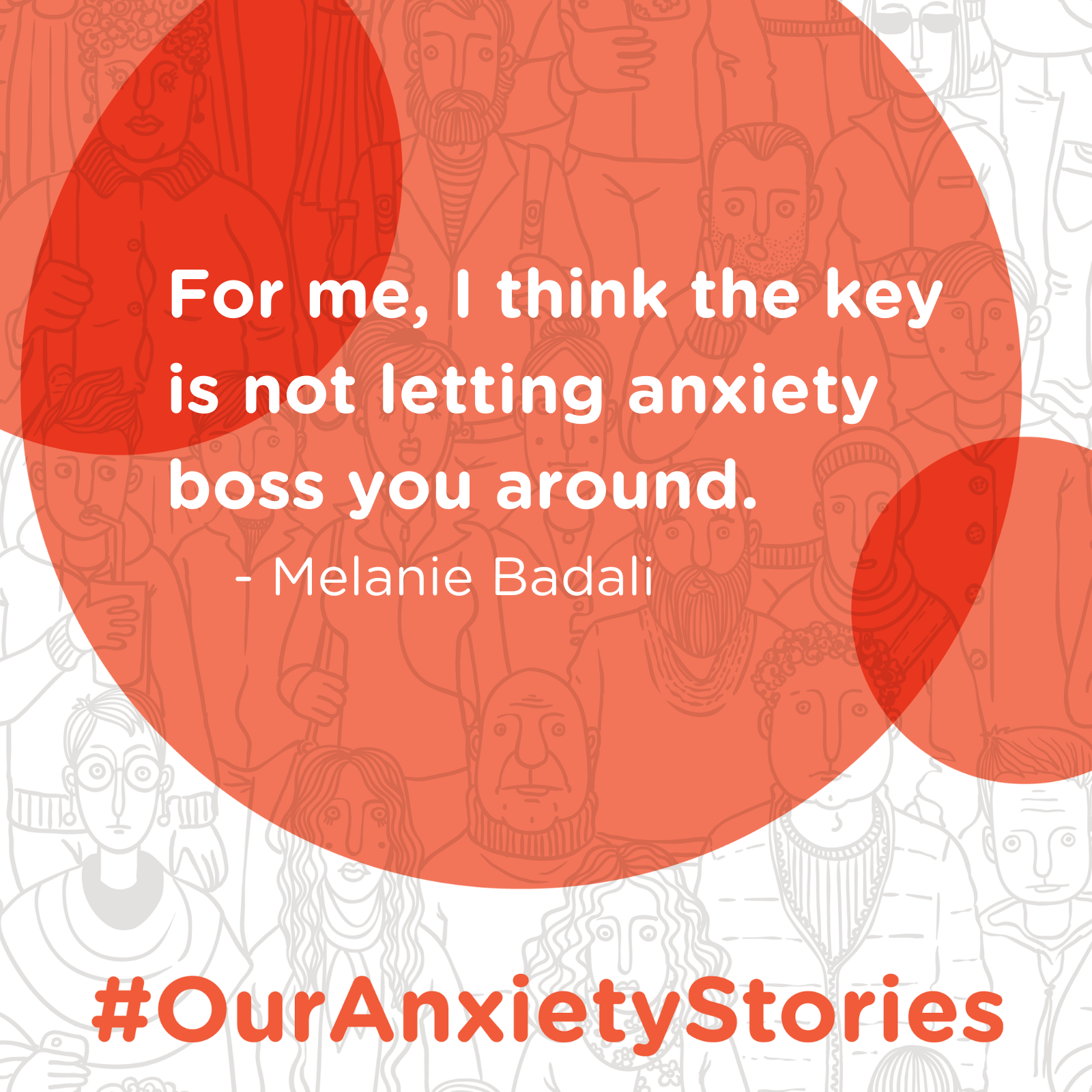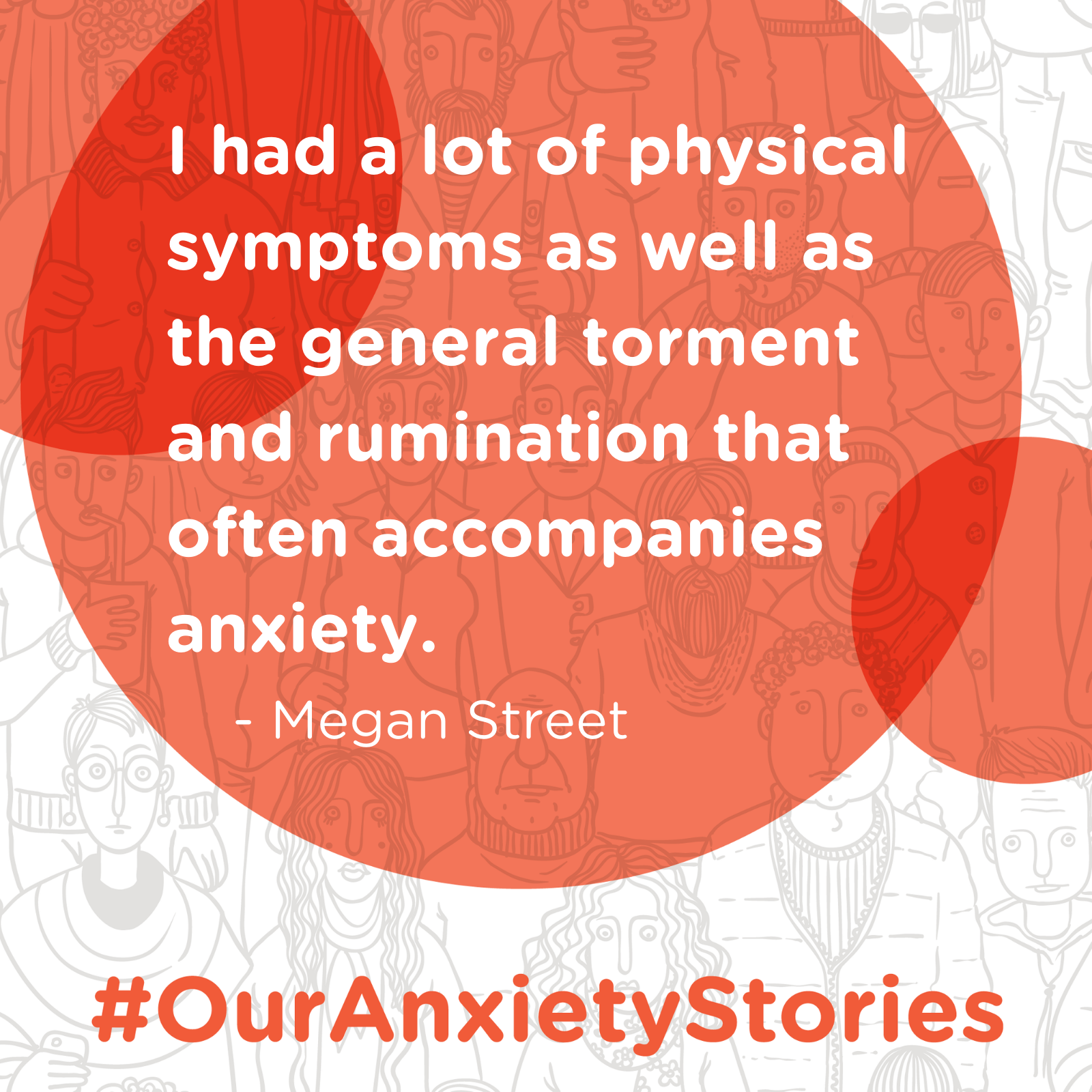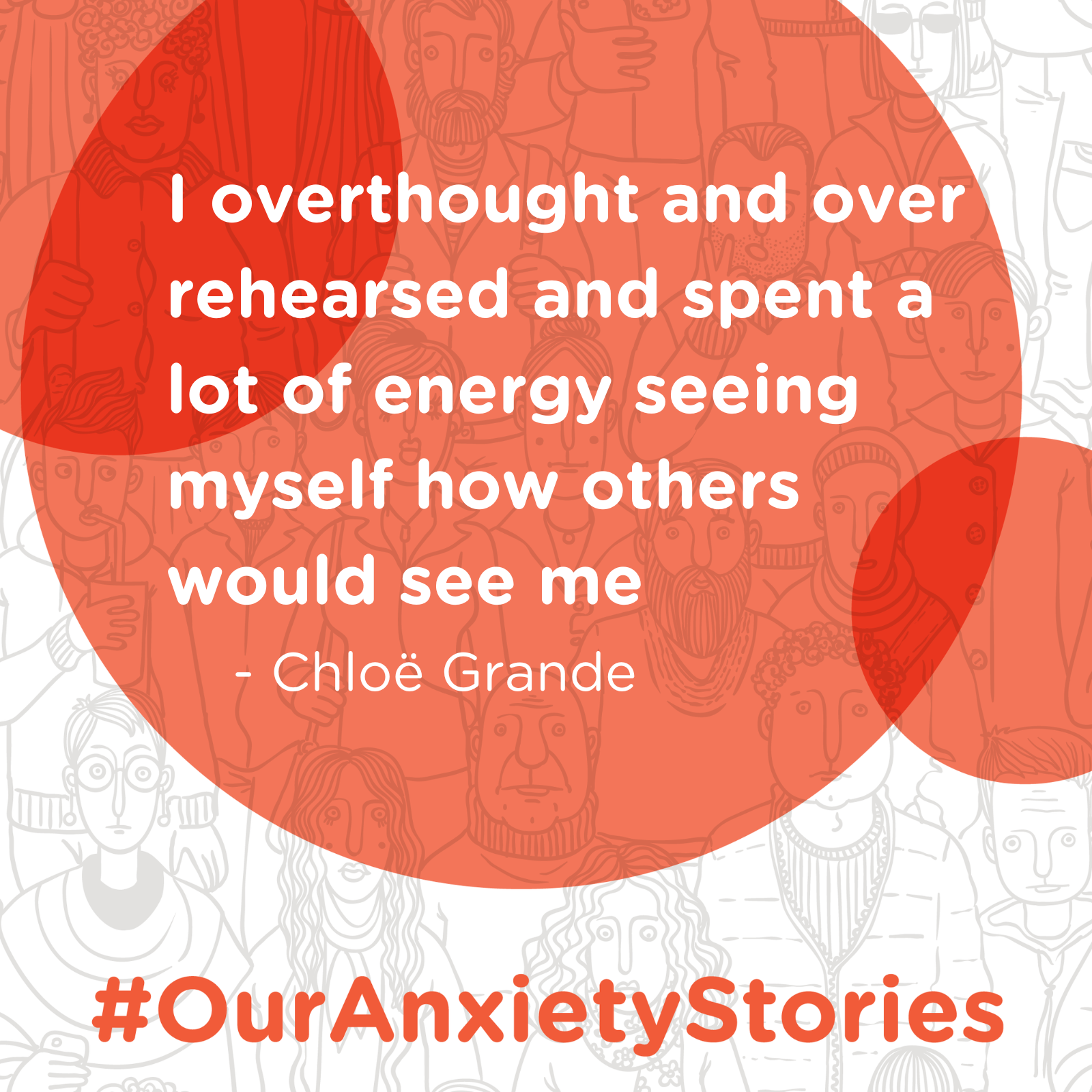Episode Transcript
Speaker 0 00:00:05 This is our anxiety stories, the anxiety Canada podcast, with John bacon. This is the place where people from all walks of life, share their anxiety stories to remind you that you are not alone. If you have an anxiety story you'd like to share contact anxiety, canada.com/our anxiety stories,
Speaker 1 00:00:30 Listening to our anxiety stories and this John Bateman. And today we're talking to Kathy Bueller apparent and residents at family smart. Hi Kathy.
Speaker 0 00:00:37 Hi John. How are you? I'm good. Thank you. How are you?
Speaker 1 00:00:41 Fine. Thanks. Uh, so I started off all these interviews with one simple question. And it's the name of the podcast? So I'd like to know what your anxiety story is?
Speaker 0 00:00:51 Well, that's a pretty open-ended question. So, um, well, one of the things my anxiety story is, um, it's, it's a double-edged sword. It means being on perpetual guard, it means continual fear. It means, um, self judgment. Self-blame shame, definitely shame, um, wanting to be seen and heard and having difficulty articulating that. Right. Okay. The other side though, it means, um, it means bravery. It means, um, compassion for myself and for others. Definitely compassion and, uh, being prepared.
Speaker 1 00:01:39 Right, right. For sure. So anxiety, is that something that's affected you personally?
Speaker 0 00:01:45 It has. Yes, definitely.
Speaker 1 00:01:47 And so that's kind of, uh, how, how did that inform your life and then how did that inform sort of what you're involved in now? How did you, did it take a while for you to get to the point where you felt comfortable, uh, being in the position that you are now sort of professionally,
Speaker 0 00:02:03 It kind of did, um, when, when this position came up, uh, I'll, I'll back up a bit. I've been dealing with anxiety for many, many years now, probably since my kids were very young and it has taken quite a while to sort of get used to it, to the point where I'm able to live with it, manage it, cope with it, thrive even with it. And when this position came up, my first thought was, Oh, I can't do it. I'm not qualified. I'm not good enough. So sort of anxiety speaking to you. Absolutely. Yeah. And then really trying to overcome that and saying, no, I've got the experience, I've got what it takes. I've got the compassion, I have the knowledge and, um, and the ability to do this and do it well. And also the compassion part means that I don't want else to feel this way. And if I can help that at all, that is what I'm here for.
Speaker 1 00:03:06 Yeah. I, I found in my own personal experience that it's, it took me a while to figure out that it can be used to my advantage having an anxiety disorder, because it's so easy to just kind of sit and live with it, but then understand that it, it gives you an advantage in that sense then in terms of helping other people. So tell me about what you do and, and in the, in, in your job, how do you, how do you, what's your, what does your day look like? Uh, how do you help other people with anxiety issues?
Speaker 0 00:03:40 Well, um, so my job is providing peer support for parents and caregivers whose children have mental health and or substance use concerns. And so a lot of the parents and caregivers that I speak with are feeling that anxiety in regards to their children and their children's health. So finding ways to help them with coping skills and tools to manage, um, is a big part of what I do listening and, and hearing people really hearing and understanding where they're at and helping people feel seen and heard.
Speaker 1 00:04:20 Right. So do you deal, do you deal with people like, so if you're dealing with parents or caregivers, do you deal with the people themselves who are dealing with anxiety? So like for example, the children or the, or you deal strictly with the, with the parents, helping them out with the strategies and dealing with they're the people they're caring for
Speaker 0 00:04:41 Strictly with parents and caregivers, um, parents, caregivers, service providers as well, and sometimes being a bridge where necessary between service providers and, um, and caregivers, but not with children themselves. No.
Speaker 1 00:04:56 No. Okay. Uh, yeah, because I found that, I mean, I've found that even sort of when I came, uh, when I, when I decided to be more transparent with my anxiety issues, my mental health issues, um, and you know, uh, I did, uh, I started this podcast and, uh, I've done it publicly where I live and I'm amazed at the number of people. I, I don't, I get approached. Uh, first of all, what I find is that every most people I bump into talk about have either had anxiety or have anxiety, or have people in their lives who do, and in my experiences, I've run into a lot of parents who have children, who, who, um, have anxiety and want to know how to deal with that. So what kind of process do you go through? Like how, what kind of suggestions do you make? Is it based on your experiences? Like if you had that much experience that you, that you're helping them with with what you've learned about yourself and how it might apply to their situation?
Speaker 0 00:05:50 A lot of times, yes. And listening to people and trying to, trying to help them articulate what they need from me. So if it's resources, I can help them find resources maybe in the community or online, or, um, helping them to find ways to help their children.
Speaker 1 00:06:12 Right. Right. And is that, so that's, you, you deal with different, you might deal with different tools or different strategies. Um, do you use, uh, what kind of do you use cognitive behavioral therapy? I've used cognitive behavioral therapy for myself, and I find it pretty handy. Do you use tools like that to help them as well?
Speaker 0 00:06:31 I'm not a trained therapist or counselor. Um, and so, um, well, I would say in a roundabout way, perhaps I would definitely use that, um, things like suggesting. Um, so one thing that really helps me is meditation. Right. And trying to find ways to be in a present moment rather than five feet ahead of myself. Yeah. Just find tools that are going to help me right now. And when I'm talking with parents and caregivers, um, trying to, to help them see what's going well, it's a really big part of it trying to help them, um, recognize when things are working for them and the parts that are not working, that they really would like help changing.
Speaker 1 00:07:23 Yeah. So, um, do you deal with mindfulness? Is that something you deal with too? I I'm curious. So meditation's helped you, meditation helps a lot of people I've found that meditation in a traditional sense. I have a hard time with it. Um, I, I, I guess I would deal with things more mindfully. So how do you approach meditation? Uh, or how does meditation work for you? Like what, what does meditation look like for you?
Speaker 0 00:07:47 For me, it's generally when I wake up in the middle of the night and I'm having trouble getting back to sleep. So very common. Yes. A couple of apps on my phone that have guided meditations. One that I use somewhat frequently is called the emergency calm. And simply all it is, is helping you to remember, to breathe deeply and helping you to remember, to, to let the thoughts sort of drift away. I can't meditate on my own. That's not.
Speaker 1 00:08:19 So, yeah. So where you're like, yeah. And that's something I can't do either. Where are you? You sit down and you're like, okay, I'm going to be calm now. It hasn't worked for me. Like, I guess because of my anxiety, it's kind of like, for me, it it's, it was, it would be is, is, uh, I guess if I could do that, I could also have the control to sit down and think I'm not going to be anxious now. Yes. It's, doesn't work for me. Um, I I've found different kinds of thought tricks that do work for me in terms of helping with dealing with anxiety right now. Um, and tell me a little bit about, just about where work family start, like the sort of the history of it or, or where it's located and what kind of, uh, what kind of other services happen there.
Speaker 0 00:09:03 Okay. Yeah. So family smart is, uh, it's a registered nonprofit and this is actually our 20th anniversary year. Wow. Congratulations. And so our founder, Kelly Anderson was instrumental in helping to get, um, child and youth mental health issues recognized and wanting for other parents to not feel so alone when their children are struggling. So we have parents and residents who do a job like mine in various communities in BC, as well as Edmonton. And we provide that peer support for parents and caregivers. We help service providers to work well with families and help families try to, to figure out more what they want from service providers. Right. We also do education where we do a monthly session called in the know, and we provide sort of, um, um, topics on child and youth mental health that parents can come together and learn about and then discuss so that they're learning. And they're not feeling isolated in whatever it is, topic that we're discussing.
Speaker 1 00:10:21 Right. Well, that's amazing because that's, uh, definitely it's interesting because my, you know, I have a very, my mother was instrumental in helping me. Um, she it's interesting. She, she, for, for her, it was a, it was a matter of when I'd have my first panic attack because of the way I was when I was a kid. And that I think that I was maybe, uh, 11 or something like that, kind of when I had my first panic attack and of course, horrible thing. But, you know, um, having that service is so invaluable. And I, I think that, you know, helping kids, helping nip it in the bite at a young age and helping create tools at a young age, it's kind of new for, for men by mental health, uh, standards and it's really, uh, a fabulous service. And so with you personally, did you experience, did you, was it like postpartum or did you, was it just through the, I've got two kids. So I know, uh, the stress of having kids and having families. So was that, what was the trigger, was there a trigger with having children? They kind of got you on your path with anxiety, uh, or was it just, you know, stress? I mean, often stress is kind of the big trigger for everybody. If that's not too personal a question,
Speaker 0 00:11:35 I think it was always latent and I've had anxiety probably since I was a young child. And I remember, um, desperately not wanting my mom to go to work sort of thing, separate and that sort of thing, but it really didn't manifest itself in, um, in more debilitating ways until after my kids were born, when I started worrying about all the things that could go wrong.
Speaker 1 00:12:01 Yeah, of course. Of course. Yeah. Yeah. Well, I mean, my kids are, you know, 15, 18 now and I still worry about all the things that can go wrong. Um, but, uh, I do implement a lot of tools now. I found it, you know, in my own experience use meditation. Is there anything else that you've used that you have created, like in your toolbox that helps you, um, you know, with, with dealing with anxiety with yourself
Speaker 0 00:12:29 Lists helped me. Um, so, and that speaks to that preparedness part where, um, if I need to be prepared for something, then I'll make a list of things that I need to remember for it. It means showing up early. Right? Yeah, of course. If I have to be somewhere, my kids joke that you did for this interview. Yes.
Speaker 1 00:12:55 Yeah. Oh yeah. That's yeah, that's fabulous. And that must really help you help, help inform with, uh, the people that you're dealing with. Is it every day for you? Are you full-time working on this?
Speaker 0 00:13:05 No. I'm part time. Yeah. And, uh, we all, all of our parents and residents work from, from our homes,
Speaker 1 00:13:13 Is that a, is that a function of COVID or is that, uh, just the way it's always been?
Speaker 0 00:13:18 That's the way it's always been. So we would do our in the know sessions in person in groups, but we don't do that anymore. Either. We do those online now, um, we would meet parents in coffee shops or go for walks and that sort of thing. So when we're talking with parents, um, it's generally out in the community.
Speaker 1 00:13:40 Yeah. Yeah. Okay. That's yeah, that's really interesting. It's an interesting model that you have going there. Yeah. I think it's a, I think it's a credible service. And what about your kids? Are you, did you, uh, with me, I mean, I've always being apparent with anxiety issues. I I'm always cognizant of, um, what I might expose kids to via my own kind of neuroses or, um, have you ha do you feel that what you've learned in working with this as it helped you informed with inform you with the way you deal with your own kids?
Speaker 0 00:14:16 No, that's definitely an ongoing struggle for sure. Yeah. Yeah. And the question is how much, how much do I say of my own fear?
Speaker 1 00:14:27 Yeah, exactly. Yeah. You kind of, you kind of want them to learn their own life quite a bit, but you also want, you know, man, to help it with those little, those little pitfalls and, and that kind of thing. Yeah, yeah, yeah. It's definitely, it's definitely a challenge. It's something that I I've always been an advocate of is, is getting kids when they're young and it's such an amazing, um, thing that you do. Like, it must be really rewarding. And I'm just wondering what, what I was wondering if people who deal with deal with people kind of directly, um, and people who have anxiety issues and then get into the field, you know, um, how does it affect you and your anxiety? Like, are you able to kind of take on all those, all that information from people and then compartmentalize it and not let it affect you too personally, because you must have to have some level of separation just to, you know, eat like just to put food on the table. It'd be, it'd be hard. Um, are you able to do that?
Speaker 0 00:15:30 Yes. Yeah. We get a lot of support at work as well, and a lot of training. And, um, if there are things that we need to debrief about, we've got people that we can talk with about that, so that are able to compartmentalize and we are able to keep it separate so that we can fully be present for parents and caregivers and know that we can get the support we need if necessary.
Speaker 1 00:15:55 Right. Um, that's, that's fabulous. I really appreciate you talking to me, Kathy. Um, and so it's family start smart, uh, webpage family smart. Is it family smart.dot CA family smart.ca. So people can go and check that out. I really appreciate what you do. You're doing great work. And I really appreciate you talking to me today. Thank you very much, John. Okay.
Speaker 0 00:16:16 Thanks. You too. Thank you for listening to our anxiety stories. If you'd like to support this podcast or anxiety Canada, go to anxiety, canada.com. <inaudible>.


